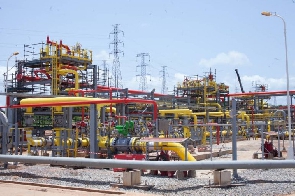An estimated $500 million in liabilities or debts is being incurred by the country’s energy sector due to ‘Take or Pay’ contracts signed between Government of Ghana (GoG) and International Oil Companies (OICs) for gas production from the Sankofa oil field alone.
According to a report by the Ghana Chamber of Bulk Oil Distributors (CBOD), the debts would have been more if not for the force majeure currently in place over signed contracts for gas imports from Nigeria which are also on a ‘Take or Pay’ basis.
“Maximizing the utilization of domestic gas will ensure that the liabilities under the “Take or Pay” contracts are lessened which, for Sankofa gas alone, amounts to over US$500 million per annum,” stated the CBOD in its 2019 Ghana Petroleum Industry Report .
“Imports from Nigeria, which like the Sankofa (OCTP) contract is governed by Take or Pay clauses, but not being enforced due to a force majeure declared by N-Gas (VRA’s gas supplier) since 2013. It is against this background that, we are of the view that further commitment to gas supplies from external sources will only worsen the current financial woes of the sector, especially when the force majeure on the West African Gas Pipeline (WAGP) is finally lifted,” added the CBOD in the report.
Ghana’s energy sector debt is projected to swell to $12.3 billion by 2023.
Based on current infrastructure, Ghana has a minimum domestic gas supply capacity of about 340mmscfd against a current gas demand of about 320 mmscfd.
This implies that Ghana’s total domestic demand for gas is covered by gas production from the three oil fields with an excess supply of 20mmscfd. However, government still imports gas from fellow West African country, Nigeria.
The import of gas from Nigeria government has argued, is to cater for an increase in gas demand for electricity generation in the medium term – 2020 to 2024.
But CBOD in its report also argued that government’s projection of gas demand for grid and off-grid uses in the medium term does not correspond with the contracted supply of gas within the period under review.
In line with the Ministry of Energy’s policy to establish natural gas as the primary fuel for power generation in the long term, natural gas is gradually becoming the backbone of the country’s power sector.
Towards the end of 2019, over 65 percent of the country’s power-generation requirement was met by natural gas. As a result of its importance to the power sector, any disruption to the gas value chain poses dire consequences for the power sector.
The power crisis experienced between 2013 and 2015, as a matter of fact was largely attributed to the non-availability of gas from Nigeria.
CBOD in the report, urged government to enhance the consumption of more domestic gas, in addition to minimizing the burden of Take or Pay liabilities to maximize oil revenues for the country.
It is also recommended that government explores the opportunity of gas exports to other West African neighbours, such as Cote d’ Ivoire, Togo and Benin.
Business News of Saturday, 6 March 2021
Source: norvanreports.com













